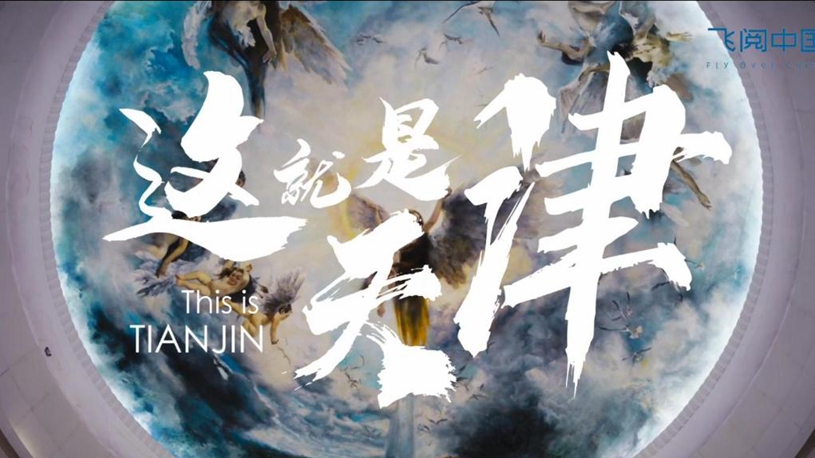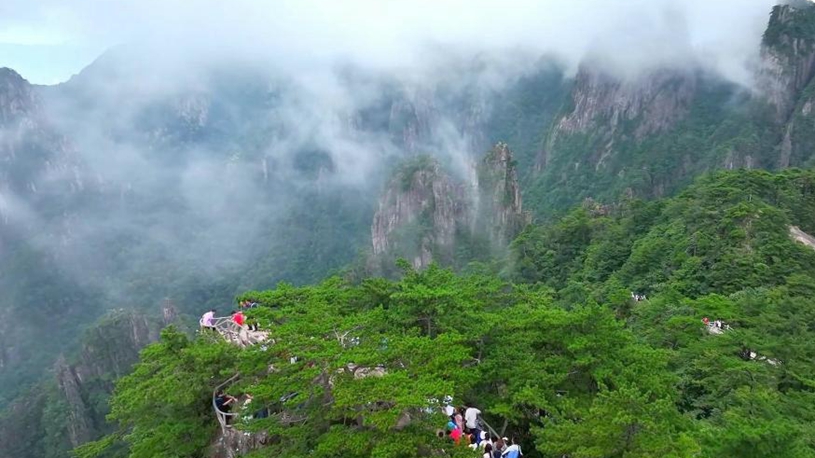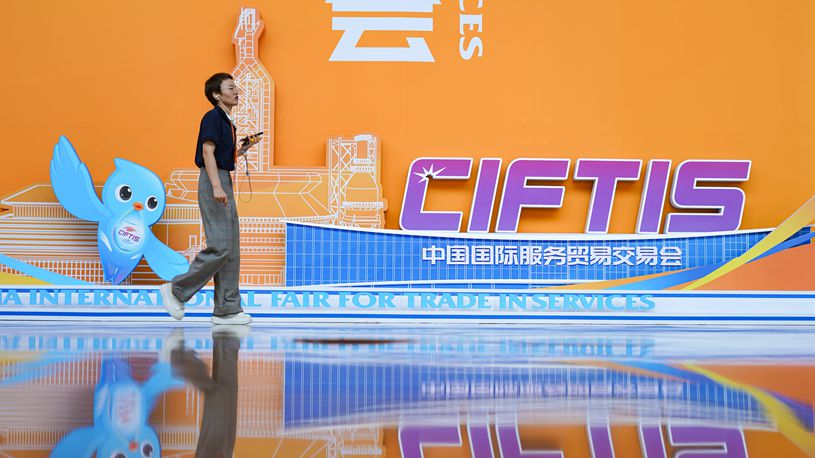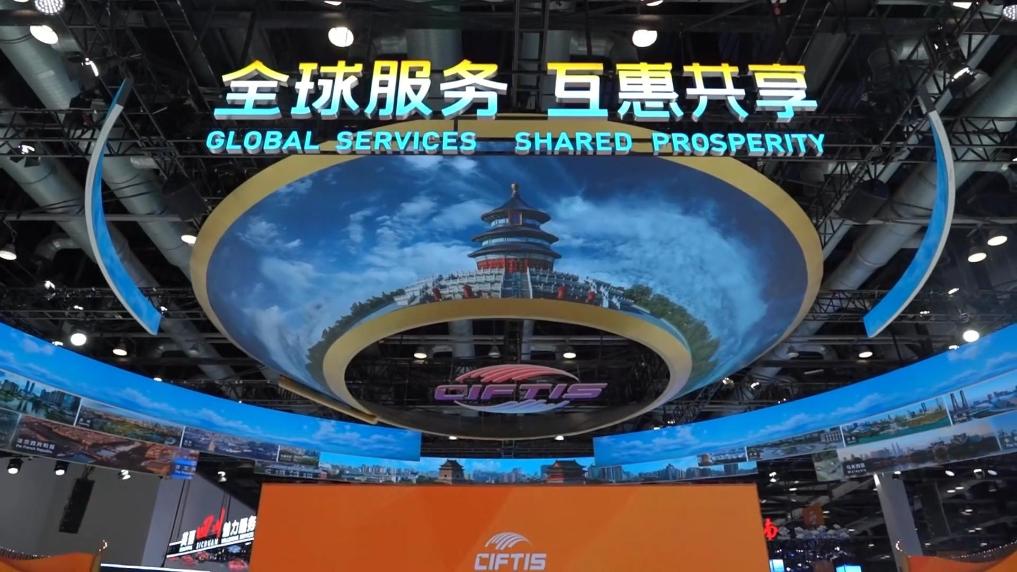BEIJING, Sept. 17 (Xinhua) -- Amid hundreds of lanterns, Beijing resident Zhang Yu strolled through a park in the Chinese capital with her mother and four-year-old daughter, enjoying a lantern show as part of the celebration of the Mid-Autumn Festival, which falls on Tuesday this year.
Her daughter, who was sitting on Zhang's shoulders, carried a small fish lantern in one hand while pointing at the many others on display at the Beijing Garden Expo Park.
"It is quite stunning. The craftsmanship of the lanterns, big or small, is exquisite, and they cover various themes, each with its own unique characteristics," said Zhang.
The show, in celebration of the Mid-Autumn Festival and the upcoming National Day holiday, displays over 200 creative lantern sets and approximately 100,000 colorful decorations. It takes place at the park from Sept. 14 to Oct. 31.
The lanterns featured in the show were crafted by hundreds of artisans from Zigong, a southwestern Chinese city renowned for its lantern-making history, said Shen Hongyue, president of the city's lantern industry association.
About 70 percent of the lantern displays have been inspired by iconic elements of Beijing, including the city's historic Central Axis, traditional courtyards and folk culture, Shen added.
To create a festive atmosphere during the holiday period, nearly 680 mass cultural activities were scheduled to take place in Beijing.
Across China, the Mid-Autumn Festival is celebrated in diverse ways, ranging from family reunions with big feasts to public gatherings featuring traditional ceremonies, performances and Mid-Autumn galas.
In southwest China's Chongqing Municipality, the Dadukou district museum has launched a range of activities allowing citizens and tourists to celebrate the festival through handicraft activities, such as the gold-foil painting.
Li Guohong, curator of the museum, said the traditional festivals are an important vehicle for passing on China's rich history and culture. And the museum has been organizing various handicraft activities, allowing citizens and tourists to have a "cultural vibe" during the Mid-Autumn Festival.
Chongqing resident Jiang Shuyao brought her children to the museum to participate in the activities. "The activities increase the children's understanding of the folk customs of the traditional festival and are very meaningful," she said.
In northwest China's Ningxia Hui Autonomous Region, the Shapotou scenic area, a desert tourism destination, has arranged various activities during the festival, including sand sliding and desert racing, to provide tourists with unique travel experiences.
Cui Lu, a tourist from southwest China's Sichuan Province, spent the festival at Shapotou with her parents. They not only experienced camel riding, but also participated in poetry-related games.
"The Mid-Autumn Festival is a time for family reunions. Here, we experience the charm of the desert together and immerse ourselves in the festive atmosphere. We are very happy," said Cui.
While many Chinese people are relishing a three-day break for travel and leisure, some are working hard to ensure that tourists have seamless travel experiences and local people enjoy family gatherings.
Among them is Lyu Jiansheng, an electrical worker from the power supply station of Beiji Village under the State Grid Heilongjiang Electric Power Company Limited, situated at the northernmost tip of China.
Early on Tuesday morning, Lyu and his colleagues prepared their equipment and commenced work to ensure a smooth power supply for the local heat-supply enterprises and residents.
"As the outdoor temperature has been close to zero degrees Celsius in recent days, we have to wear cotton-padded jackets and gloves for our outdoor maintenance and repair work," he said. "Seeing the prosperous lives of the villagers and the increasing popularity of the village, I'm determined to keep the lights shining, no matter how difficult or tiring it may be."
China is expected to see 74 million railway passenger trips during the travel rush period from Sept. 14 to 18, official data shows. ■











